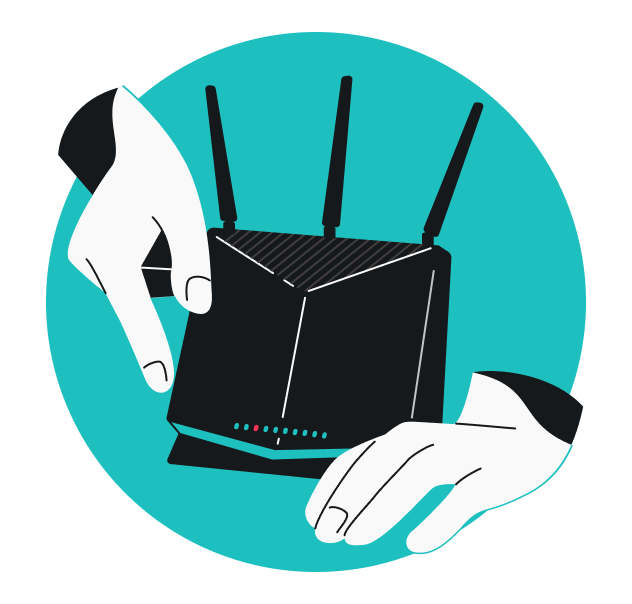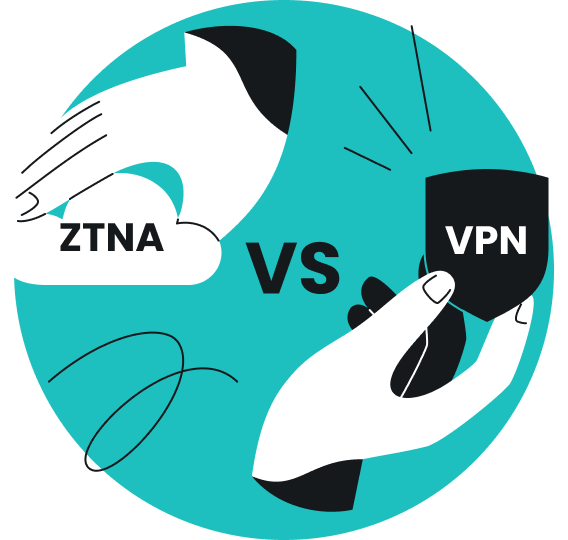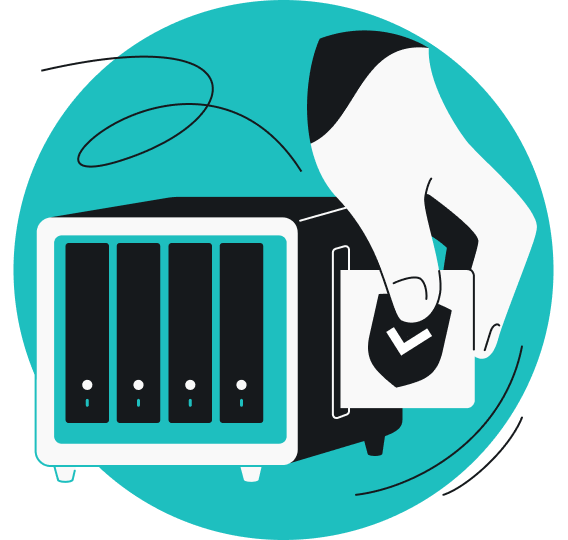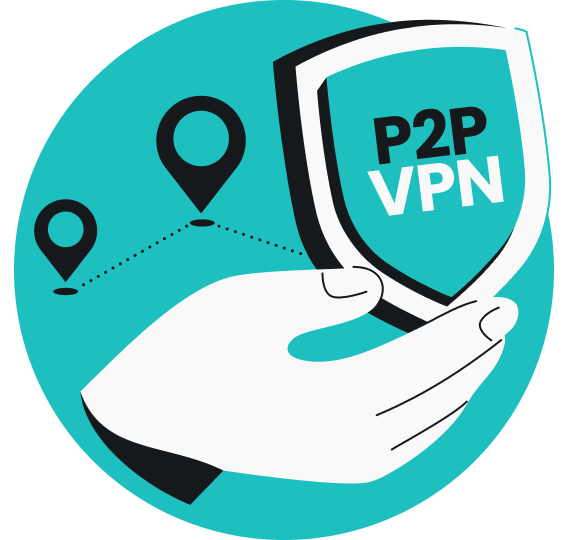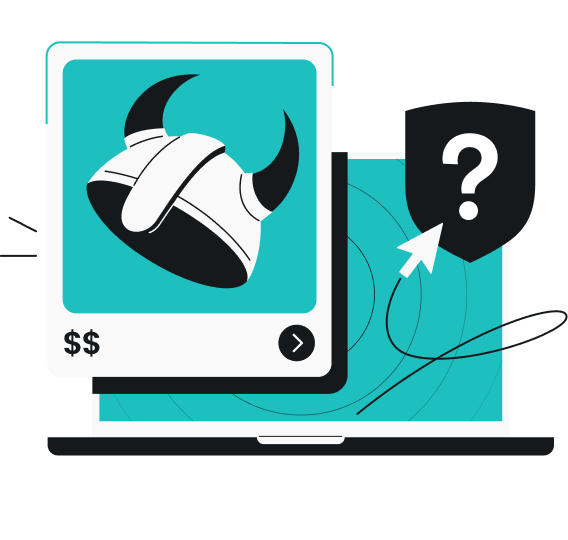Tor and VPNs are two of the most widely used tools for protecting online activity, but they work in very different ways. One works toward anonymity through a decentralized network; the other focuses on privacy and security through encrypted connections. Both have strengths, weaknesses, and unique use cases.
What is Tor?
Tor — short for The Onion Router — is a decentralized network designed to hide the origin and destination of internet traffic. It was originally developed in the mid-1990s by the US Naval Research Laboratory for intelligence purposes. Today, it’s maintained by The Tor Project, a non-profit organization, and is widely used by journalists, activists, and privacy-conscious individuals worldwide.
Unlike typical internet connections, Tor does not send your data directly from point A to point B. Instead, it routes your traffic through a series of volunteer-run servers scattered around the globe, making it significantly harder to identify the user. Only well-resourced adversaries or specific technical weaknesses have been shown to bypass Tor’s protections, and these cases are rare.
Tor is often discussed in the same breath as the dark web, but the two aren’t synonymous. The dark web refers to websites accessible only through Tor or similar anonymity networks, many of which host legal content (like whistleblowing platforms) alongside illegal marketplaces. However, using Tor doesn’t automatically mean visiting dark web sites, as it improves privacy on the regular internet as well.
How Tor bounces your traffic around the globe
Tor uses a technique called onion routing. When you connect through Tor, your data passes through at least three randomly selected relays in the network — layers of a figurative onion.
- Entry node: knows your IP (Internet Protocol) address but not your final destination;
- Middle relay: passes data along without knowing where it came from or where it’s going;
- Exit node: strips the final layer of encryption and delivers the data to its destination, but doesn’t know who sent it.
Because each relay only knows its immediate predecessor and successor, no single point in the chain has a complete picture of who you are or what you’re doing online.
However, once your traffic leaves the exit node, Tor no longer encrypts it. If you’re visiting an unencrypted site (HTTP instead of HTTPS), the exit node operator can see the contents of your traffic. This is one of the main security caveats for Tor users.
This multi-hop routing is effective for anonymity but comes at the cost of speed. A request that might take milliseconds on a direct connection can take seconds over Tor, especially if the relays are on opposite sides of the globe.
Tor’s strengths and weaknesses
Tor makes it difficult to trace internet activity back to the user. Because your connection is routed through multiple relays, no single entity — whether it’s your ISP (Internet Service Provider), a government agency, or the site you’re visiting — can see the full picture of your activity.
Tor’s strengths
- Strong anonymity: by design, Tor hides your IP address from the sites you visit, and your surfing from your ISP. This makes it especially valuable in countries with heavy internet surveillance or censorship;
- Censorship resistance: Tor can bypass firewalls and blocks, granting access to information otherwise unavailable in certain regions;
- No central authority: since it’s an open network run by volunteers, there’s no single company or server that can log or monetize your browsing data;
- Free to use: unlike many privacy tools, Tor does not charge a subscription fee, which can be a deciding factor for people under repressive regimes or based in low-income regions.
Tor’s weaknesses
- Slow speeds: traffic bouncing between distant relays adds latency. Streaming video or making video calls over Tor is often impractical;
- Blocked by some services: certain sites, including banks and major streaming platforms, block known Tor exit node IP addresses to prevent fraud and abuse;
- Exit node risks: because Tor’s encryption ends at the exit node, anyone running that relay could monitor unencrypted traffic. If you visit a non-HTTPS site, your data could be visible;
- Not immune to advanced tracking: state-level actors with control over large portions of the internet infrastructure can perform traffic correlation attacks to deanonymize users.
In 2014, researchers from Carnegie Mellon reportedly deanonymized Tor users by exploiting traffic patterns, work that the FBI later used to investigate criminal marketplaces.
This doesn’t mean Tor is broken — but it shows that for determined, well-funded adversaries, anonymity is not absolute.
What is a VPN?
A VPN (Virtual Private Network) is a service that encrypts your internet traffic and routes it through a server operated by the VPN provider. The concept dates back to the mid-1990s, when corporations used VPNs to let employees connect to their internal networks over the public internet. Today, consumer VPNs are marketed as tools for privacy, security, and travel.
The biggest conceptual difference from Tor is that a VPN connection has fewer (usually just one) intermediaries — the VPN servers — instead of multiple volunteer-run nodes. That makes it significantly faster and more stable than Tor, but places a degree of trust in that server’s owner — the VPN provider. Because of this dependency, reputable services tend to implement strict no-logs VPN policies and undergo independent audits to verify they do not record or monitor traffic.
This centralization means that choosing a VPN provider comes down to trust: their logging policies, jurisdiction, and technical safeguards will determine how much privacy you truly get.
How VPNs route your data through encrypted tunnels
When you connect to a VPN, your device establishes an encrypted tunnel between you and the VPN server. Your internet traffic then passes through this tunnel before it reaches its destination. To an outside observer, your IP address appears to be that of the VPN server rather than your own.
From a technical standpoint, this encryption happens in real time using protocols such as WireGuard, OpenVPN, or IKEv2. This protects your data from local network snooping — for example, when using unsecured public Wi-Fi.
VPNs’ advantages and drawbacks
VPNs occupy a middle ground between convenience and privacy: they can hide your activity from your ISP and mask your location, but the trade-off is their centralized trust model.
VPNs’ advantages
- Faster performance than Tor: a single encrypted hop to a VPN server avoids the multi-node latency of Tor. VPNs can handle streaming and large downloads without major slowdowns;
- Secure on public networks: on unsecured Wi-Fi (like airports or cafés), a VPN encrypts your data, protecting it from local attackers running packet sniffers;
- Great for travel: VPNs can make it appear as if you’re connecting from your home country, which can help you securely use services you normally access at home;
- Consistent connection: because servers are professionally maintained, VPN uptime and reliability tend to be higher than volunteer-run Tor nodes.
VPNs’ drawbacks:
- Centralized trust: VPN providers can see your originating IP and potentially your activity, so logging policies, jurisdiction, and safeguards are critical. These vary widely between providers and determine the level of privacy you can expect;
- Legal and policy risks: in some countries, VPN use is regulated, monitored, or outright banned. Users in such regions risk fines or other penalties if caught;
- Not anonymous by default: VPNs are designed for privacy, not full anonymity like Tor, but multi-hop (double VPN) configurations and obfuscation features can add layers of protection.
Reporters Without Borders (French: Reporters sans frontières; RSF) recommends that all journalists keep a VPN switched on due to its ability to protect metadata, such as location, destination, search history, and online purchasing history.
According to RSF, free VPNs should not be considered, as it is highly possible they will collect and sell users’ data.
The main difference between Tor and VPNs
Tor and VPNs are both designed to protect users online, but they do so in different ways and with different strengths.
|
|
Tor
|
VPN (Surfshark)
|
|
Primary goal
|
Anonymity
|
Privacy and security
|
|
Routing
|
Multi-hop through volunteer relays
|
Single-hop or multi-hop (double VPN) through secure provider servers
|
|
Speed
|
Slow, high latency
|
Fast, stable; Multi Hop slightly slower than single-hop
|
|
Trust model
|
Decentralized, volunteer infrastructure
|
Centralized, audited, and professionally maintained
|
|
Censorship bypass
|
Strong, harder to block
|
Moderate, easier to block
|
|
Data exposure
|
No central logs, but exit nodes may see data
|
No traffic logs; encryption end-to-end
|
Anonymity vs. privacy
Tor focuses on anonymity by routing traffic through multiple volunteer-operated relays worldwide. This design makes it difficult for any single relay to connect your identity with your activity.
VPN prioritizes privacy by encrypting traffic between your device and a secure server. Your ISP cannot see your activity, and reputable VPNs operate under strict no-logs policies — often verified by independent audits.
Speed vs. resilience
Tor’s multi-hop routing across the globe adds significant latency, which can slow down browsing and make activities like streaming or gaming impractical.
VPN’s single encrypted tunnel offers faster, more stable connections. Some VPNs also offer multi-hop servers (double VPN), routing your traffic through two or more secure locations for added privacy without Tor-level slowdowns.
Trust model
Tor is decentralized — no central authority controls the network, but node operators are unknown and unverified.
VPN is centralized — operated by a single provider, which makes transparency, audits, and jurisdiction important. With a reputable service, the infrastructure is professionally maintained, and security practices are standardized.
Censorship resistance
Tor can bypass aggressive network censorship using bridge relays and obfuscation techniques.
VPNs are effective against most types of content censorship, and modern VPNs use obfuscated servers to make VPN traffic blend in with regular HTTPS — reducing the likelihood of detection or blocking.
Coverage
Tor primarily protects activity in the Tor Browser, with limited integration into other applications.
VPN can protect any app, browser, or device it supports — including securing an entire Wi-Fi network when installing a VPN on a router.
Can you use Tor and a VPN together?
Yes — Tor and a VPN can be combined, but how you connect matters. The sequence determines who can see what, and the trade-offs aren’t always worth it for everyday surfing.
Tor over VPN (VPN first, then Tor)
Your device connects to a VPN, then enters the Tor network through the Tor Browser or another Tor-enabled app.
VPN hides Tor use from your ISP, since they only see you connecting to a VPN. The VPN provider sees that you’re using Tor, but not the content of your traffic.
|
Pros of Tor over VPN
|
Cons of Tor over VPN
|
|
Useful when Tor traffic is blocked
|
Slower than using just Tor or just a VPN
|
|
VPN adds encryption before the Tor entry node
|
Still vulnerable to malicious exit nodes if visiting unencrypted sites
|
VPN over Tor (Tor first, then VPN)
Your device connects to Tor first, then sends traffic through a VPN server.
The VPN server’s IP becomes your public IP, hiding Tor exit nodes from the sites you visit.
|
Pros of VPN over Tor
|
Cons of VPN over Tor
|
|
Prevents websites from blocking Tor exit node IPs
|
More complex to set up — often requires configuring the VPN client for Tor connections
|
|
Adds a VPN’s encryption and security benefits to Tor browsing
|
Tor entry node can still see your IP
|
Is using a VPN and Tor together a good idea?
For most people, the answer is no. A reputable VPN or Tor alone will meet the typical privacy or anonymity needs. Combining the two is best reserved for high-risk scenarios: investigative journalism in hostile environments, political action under surveillance, or research involving sensitive data. When you use a VPN with Tor, expect significant performance drops.
That said, modern VPNs with multi-hop (double VPN) configurations and obfuscated servers can achieve some of the same privacy benefits without the heavy speed penalties of running Tor and a VPN together.
Conclusion: No shoe fits all
Tor and VPNs are built for different priorities: Tor excels at anonymity through decentralization, while VPNs focus on privacy, speed, and ease of use. For most users, a reputable, audited VPN provides strong day-to-day protection and a better balance between security and performance. Tor remains a vital tool for high-risk situations where anonymity outweighs convenience. Neither is a cure-all — the safest approach is choosing the right tool for your threat model and pairing it with careful surfing habits.
FAQ
When should you use the Tor Browser?
Use the Tor Browser when anonymity is your highest priority — such as protecting your identity while researching sensitive topics or communicating in restrictive environments. It’s especially useful if you need to hide your online activity from both your internet provider and the sites you visit.
When should you use a VPN?
Use a VPN to protect your internet traffic from being monitored by your ISP, secure your connection on public Wi-Fi, or access your home content while traveling abroad. It’s a strong choice for everyday privacy without the significant slowdowns associated with Tor.
Is Tor a VPN?
No, Tor is not a VPN. Tor is an anonymity network that routes your traffic through multiple volunteer-run servers, while a VPN encrypts your connection and routes it through a secure server run by a provider.
Is Tor more anonymous than a VPN?
Yes — Tor is generally more effective at anonymizing your activity because no single relay knows both your identity and destination. However, it is slower and less practical for activities that require high speed or low latency — which is what VPNs do efficiently.
Does the Tor Browser hide your IP?
Yes, the Tor Browser replaces your IP address with that of a Tor exit node, making it harder for websites to identify you. Keep in mind that other identifying factors, like browser fingerprinting, can still reveal information about you.
Is Tor better than a VPN?
Neither is better in all situations — Tor prioritizes anonymity, while a VPN focuses on privacy, speed, and ease of use. The right choice depends on your needs and the risks you’re trying to address.
What are the differences between Tor, VPN, and a proxy?
Tor anonymizes your connection by routing it through multiple relays; a VPN encrypts all your traffic and sends it through one secure server; a proxy simply forwards your traffic without encryption. Each serves different privacy needs, with Tor best for anonymity, VPNs for privacy and security, and proxies for basic IP masking.

